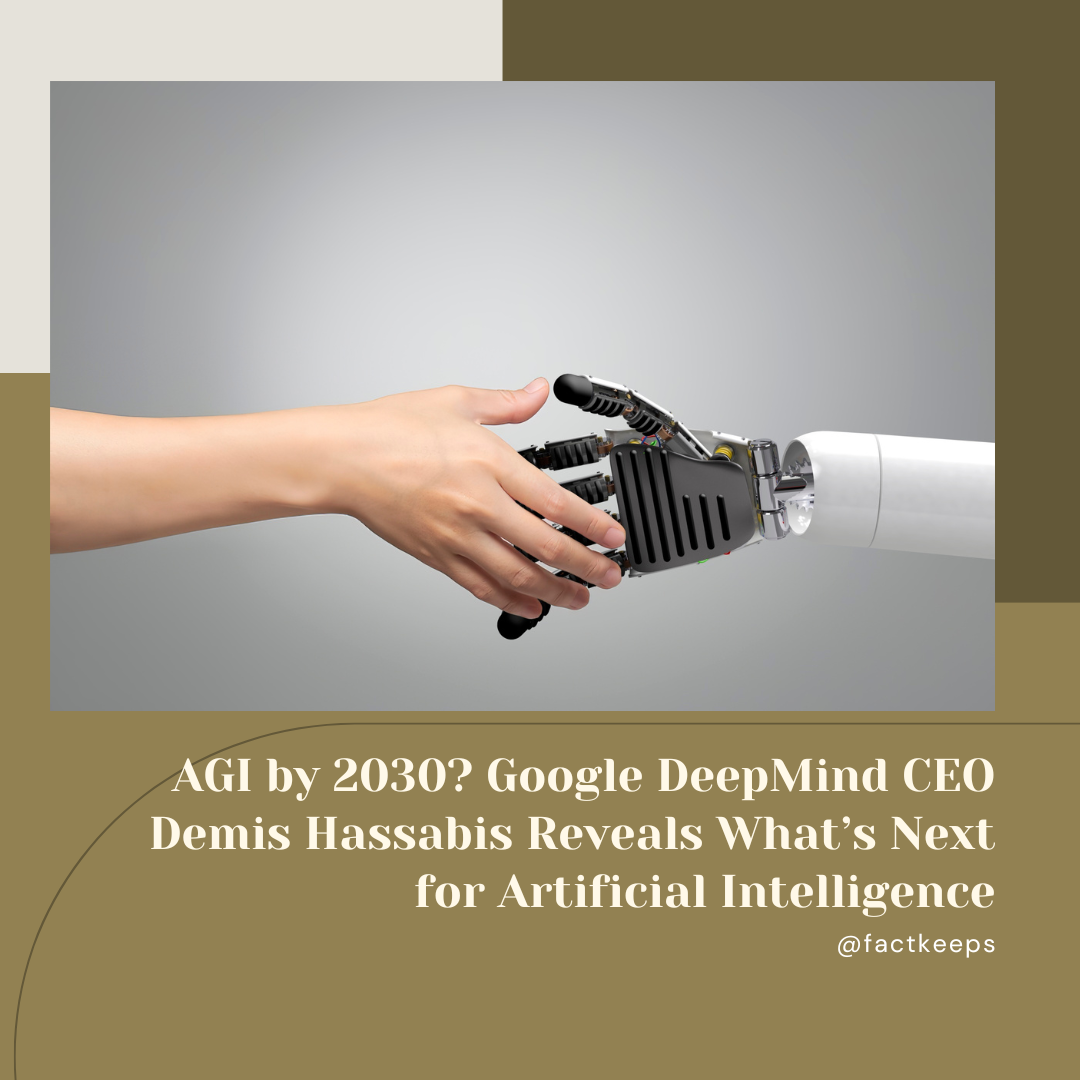Last Updated on April 22, 2025 by factkeeps
In a revealing interview on 60 Minutes, Demis Hassabis, the CEO and co-founder of Google DeepMind, laid out his vision for the future of artificial intelligence and offered a bold prediction: artificial general intelligence (AGI) could be a reality within five to ten years.
Hassabis, who holds a PhD in neuroscience and is recognized globally for his contributions to AI, described the current moment in tech as one of exponential growth. He emphasized that AI development is moving at a pace never seen before, fueled by an influx of talent, greater access to computing resources, and global attention. “We’re now on an exponential curve,” he noted, suggesting that advancements that once took decades may now take years—or even months.
DeepMind, the AI research lab behind groundbreaking innovations, showcased several projects that signal just how close the world is to AGI. Among them is Astra, a next-generation AI assistant that can see, hear, and interact in real time. Unlike previous models, Astra can interpret complex visual information, analyze images, and generate coherent, creative responses. In one demonstration, Astra observed a work of art and crafted a story about it—blending visual understanding with narrative intelligence.
Another major project in the works is Gemini, which represents a leap from interpretation to action. While Astra understands and communicates, Gemini is designed to perform tasks in the real world—such as booking travel or making purchases online. The goal is to create AI that doesn’t just respond, but proactively assists, similar to how a human assistant might operate.
The interview also featured Genie 2, a model capable of converting still images into interactive 3D environments. The potential applications range from video games to virtual training grounds for robots. But more importantly, Genie 2 demonstrates how far AI has come in understanding and simulating the physical world.
Hassabis also pointed to the upcoming revolution in robotics. According to him, we are just a few years away from humanoid robots capable of performing practical, everyday tasks. These machines would integrate AI capabilities like Astra and Gemini with physical mobility—making them useful in homes, hospitals, and industries alike.
Beyond the technological feats, Hassabis emphasized the role of AI in transforming healthcare. He believes AI could cut down the time required for drug development from years to mere months. DeepMind’s previous success with AlphaFold—a tool that predicted the structure of over 200 million proteins in a year—demonstrates how AI is already accelerating medical science.
Despite his optimism, Hassabis remained cautious about the ethical and societal implications. He underscored the importance of international collaboration, strict safety measures, and the need for new ethical and philosophical frameworks. As AI begins to operate at levels approaching human-like understanding, questions about consciousness, agency, and the nature of intelligence are becoming increasingly urgent.
Looking ahead, Hassabis envisions a world where AI contributes to solving some of humanity’s biggest challenges—from ending disease to ushering in what he called a “radical abundance” of resources and knowledge. But he also warned that humanity must proceed carefully, ensuring these powerful tools are developed and deployed responsibly.
As AGI appears closer than ever, DeepMind’s latest breakthroughs offer a glimpse into a future where machines might soon become collaborators, creators, and companions.
(With AI inputs)



